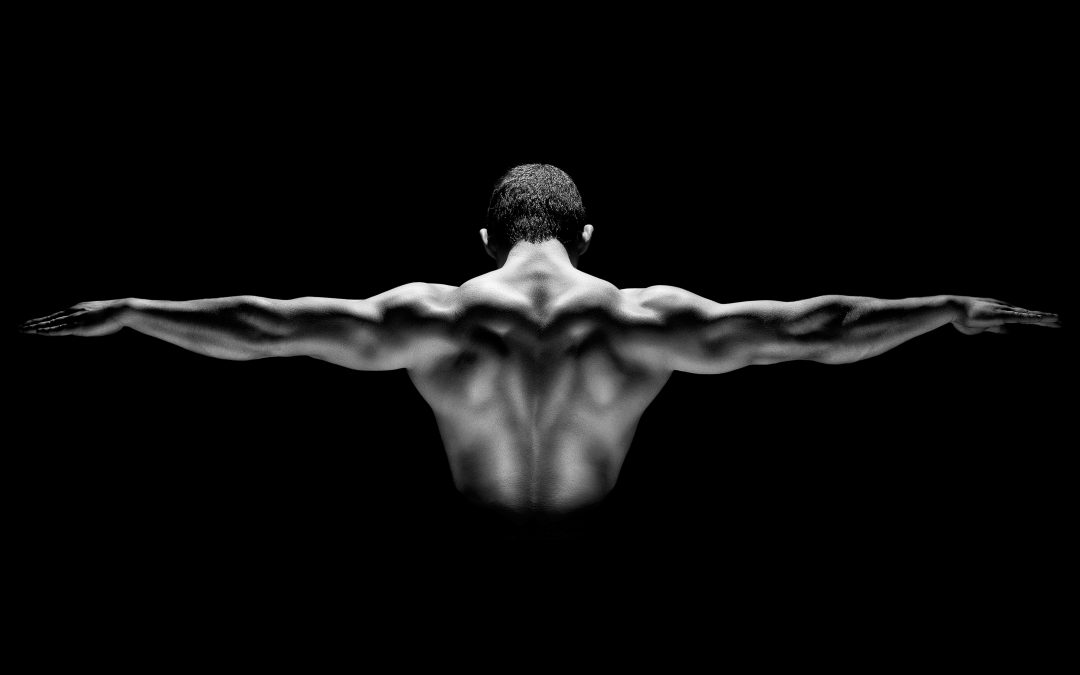Well yea, if you try to lose 15 pounds in a week by only drinking four tablespoons of mangosteen nectar.
In this post, I want to compare and contrast three weight loss studies investigating anabolic hormone changes in highly-trained and high-level male athletes.
The first study was a rapid weight loss trial in wrestlers, where subjects maintained a protein intake of 2g/kg, while reducing energy intake to 800-2,000 kcals per day depending on the amount of weight loss needed. These athletes dieted down heavily to make weight and in the process saw a significant loss in lean body mass and a testosterone drop of 63% in three weeks (744 ng/dL to a hypogonadal 280 ng/dL) along with a 40% rise in SHBG and a 54% depression in LH. Not good and unfortunately, these athletes were not tracked afterwards to see if or how fast this decrement rebounded.
“It can only be speculated that without dehydration the serum testosterone values would have been even lower… the change in serum testosterone reflects undernourishment and overall stress during the whole period of weight reduction.”
-Karila et al. 2008
The second study was a four week weight loss trial in track and field athletes where they compared a 750 kcal deficit to a 300 kcal deficit, both while maintaining a high protein intake (>2g/kg and around 24% Fat, 31% Protein, and 45% Carbohydrate). The 750 kcal deficit group of athletes lost on average around four pounds of fat with no significant loss in lean body mass or changes in hormonal status.
“Weight reduction gradually by two kg in four weeks was accompanied by improved weight-bearing vertical jumping and sprinting performance, without severe negative consequences on serum anabolic and catabolic hormones and FFM.”
-Huovinen et al. 2015
On a side note, the 300 kcal deficit group failed to even reduce their caloric intake significantly or lose any fat mass, so it may be best in practice to overshoot a bit in your kcal deficits. This is not uncommon and usually I will put a buffer in my calculations that the client doesn’t really know about. Nevertheless, track and assess what the hell is actually happening.
The third study was an eleven week trial in international-level bodybuilders with around eight years of experience. A group of these subjects were prepping for the national championship. Among the three studies, this is by far the best in terms of design and methods. They tracked training volume and diet pretty meticulously and had a control group under the same training protocol with no caloric restriction. The dieting group was at about a 500-1,000 kcal negative energy balance, but a very high energy flux. They were consuming around 3,200-3,500 kcals while burning between 4,000-4,200 depending on the time point. Diet wasn’t anything extreme (about 2g/kg protein, 400ish grams of CHO, and 25% Fat, 15% Protein, and 60% Carbohydrate).
Over the eleven weeks, the weight loss group lost a little over nine pounds and went from 9.6 to 6.5% percent body fat as measured by DXA. The control group exhibited no changes in weight or body fat percentage. Testosterone concentration was significantly decreased by about 90 points (586 to 496 ng/dL) in the weight loss group at 5 and 11 weeks when compared to initial values and a slight elevation was seen in the control group. Obviously, this is nothing compared to the first study and we would expect these guys to bounce back once they decreased their negative energy balance, but it would have been really interesting to get one more time point a month or so out from the competition to see what happened.
To summarize, “Testosterone was significantly decreased during the initial energy-restriction period. Furthermore, the values of insulin and IGF-I decreased under the healthy reference value at 11 weeks.”
-Maetsu et al. 2010
How interesting is that, even while blowing down 400+ grams of carbohydrate per day their fasting insulin values dropped off by about 50%, all while maintaining a fasting glucose value of around 83 mg/dL across the entire 11 weeks. Hmmm overall energy balance trumps the macro fairy once again.
THE FINAL WORD
It’s New Years. Gentlemen, let us refrain from quick fixes and the 700 calorie p90x shit show. We must learn to play the long game. Period. Even if you are super lean and trying to get super super shredded.
And bros – please say NO to 600 calorie juice “cleanses”, no matter what your girlfriend may say. The liver needs protein to detox anything anyways so just. don’t. do. it. unless you want to lose lean body mass and hormonally turn into your girlfriend.
REFERENCES:
- Karila TA, Sarkkinen P, Marttinen M, Seppala T, Mero A, Tallroth K. Rapid weight loss decreases serum testosterone. Int J Sports Med. 2008;29(11):872-877.
- Huovinen HT, Hulmi JJ, Isolehto J, et al. Body composition and power performance improved after weight reduction in male athletes without hampering hormonal balance. J Strength Cond Res. 2015;29(1):29-36.
- Maestu J, Eliakim A, Jurimae J, Valter I, Jurimae T. Anabolic and catabolic hormones and energy balance of the male bodybuilders during the preparation for the competition. J Strength Cond Res. 2010;24(4):1074-1081.



Recent Comments